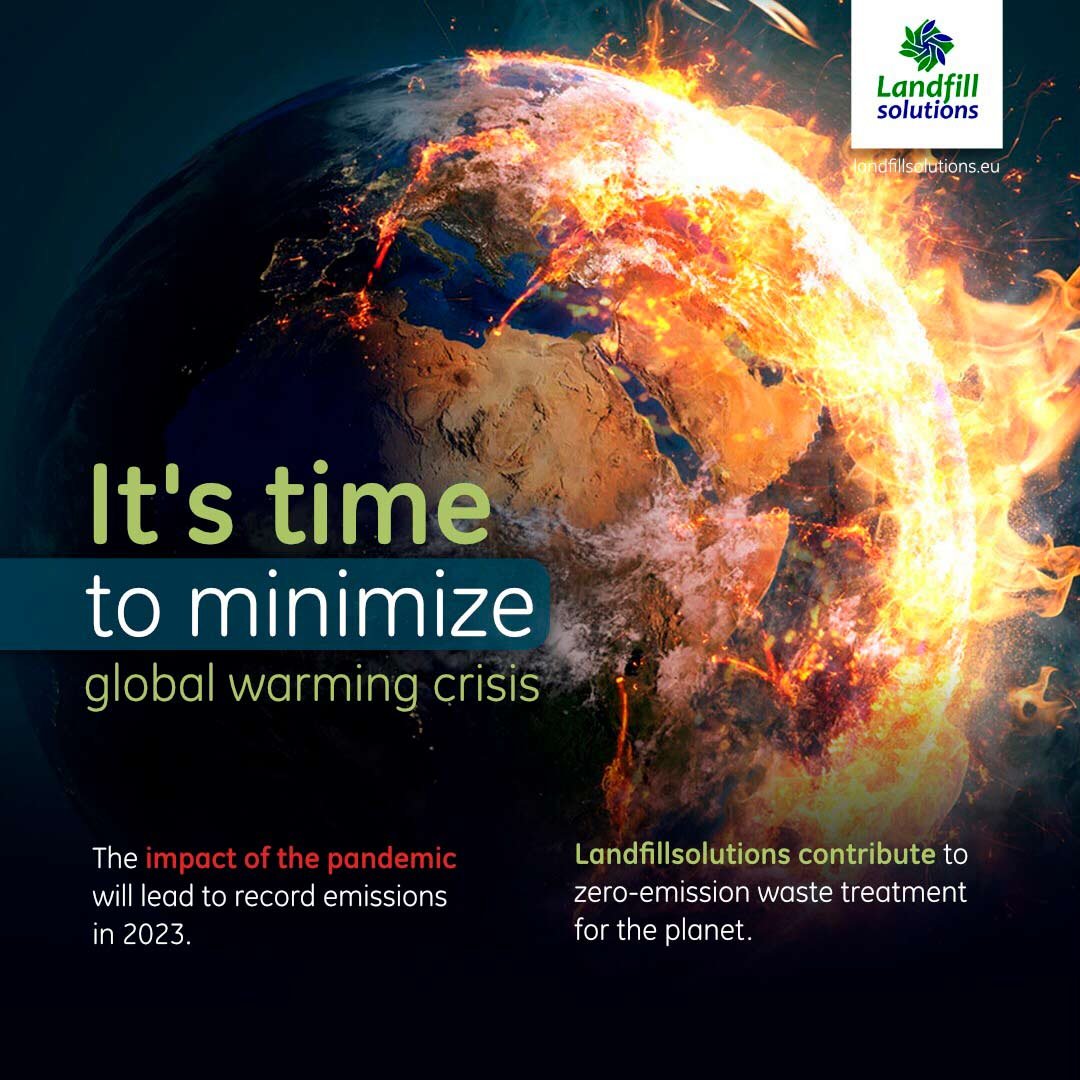Global greenhouse gas (GHG) emissions are likely to rise to record levels in 2023 and the following years as investments in green technology drop due to the Covid-19 pandemic, according to forecasts released by the International Energy Agency.
The COVID-19 crisis in 2019 forced governments to allocate most of their resources to health and social policies to support businesses and families. Of the $16 trillion that the IEA estimates governments have mobilized to address COVID-19, only 2% has been allocated to the energy transition.
Hence, based on the current forecasts for public spending, the IEA expects new record emissions levels in 2023 and beyond. If these trends continue following the same path over the years, the consequences would be catastrophic.
As the latest and most extensive report of the IPCC recently confirmed, it is a “code red” for humanity. Only a rapid and deep decline of CO2 emissions in the coming decades could stabilize temperatures and prevent the temperature on the planet from rising above 2°C.
| Consequences of global warming
✔ Threat to life on Earth. ✔ Biodiversity loss and threat to ecosystems. ✔ Extreme weather events: droughts, torrential rains, heat waves, typhoons… ✔ Social impact and rising inequality. ✔ Migrant crises ✔ Irreversible changes in the planet that will last for centuries and millennia. |
How does municipal solid waste (MSW) contribute to GHG emissions?
Solid waste is a major emitter of greenhouse gases (GHG). According to some estimates, by 2050, 2.6 billion tons of CO2 will come from solid waste.
- The decomposition of organic waste produces methane gas, one of the largest contributors to global warming. Estimates calculate that open dumpsites will be accountable for 5-10% of global anthropogenic emissions by 2025.
- Food waste is one of the main contributors to greenhouse gas emissions (GHG) due to methane. In total, food waste makes up about 6% of global emissions. If food waste was a country, it would be among the top 4 largest emitters in the world.
- Unmanaged landfills increase wildfire risk, which follows carbon emissions. According to the UN, in 2019 an increase in the number of wildfires followed a significant growth in carbon emissions, reaching 2.6% that year compared to a 1.3% annual average. Note that landfills accumulate all kinds of flammable gases and high heating products. Under the right conditions, spontaneous combustion of solid waste can occur.
- In 2017, waste-to-energy incineration was responsible for more than 40 million tons of CO2 in the EU 28. WtE Incineration had been promoted in Europe as an alternative to landfilling, however, MSW incineration produces high amounts of CO2 emissions. Consider each ton of MSW incinerated produces between 0.7 and 1.7 tons of CO2. Therefore, it is necessary to find clean alternatives to WtE incineration. For instance, THERMOLYSIS, is a thermochemical waste treatment that does not burn the material and produces less than 4 g/h per ton of waste. Learn more about the results.
Clean alternatives to WtE incineration and energy recovery
Better waste management not only helps to reduce carbon emissions and mitigate the effects of climate change but also creates new economic opportunities through a circular economy.
According to the United Nations agency, UN-Habitat, one estimate says that through making sure waste was correctly managed in Africa instead of being dumped, an additional USD 8 billion could be injected into the African economy each year.
As aforementioned, food waste has a large impact on GHG emissions and in general, constitutes the largest share of a country’s waste, especially in lower income countries. Therefore, the recycling sector has great potential for wealth creation.
Indeed, organic waste can be transformed into valuable products. For instance, REVALUO, our low-carbon waste-to-energy system, uses organic waste (food waste, biomass, agricultural and animal waste, etc.) to produce Bioethanol and Biochar. Two valuable products in the market.
REVALUO, the low-carbon value recovery-WtE solution
REVALUO is the low-carbon waste-to-energy system (WTE system). Our system uses THERMOLYSIS, a non-burning thermochemical treatment for municipal solid waste. REVALUO manages to recycle and recover value from 85 to 90% of solid waste in landfills and produces significantly fewer carbon emissions than a WtE incinerator.
Our system processes both, organic and inorganic waste plastic, tires, sanitary waste, leachate…) using two fundamental treatments: HYDROLYSIS and THERMOLYSIS.
Learn more about the products we can obtain and visit our results section.
| The Benefits of REVALUO
✔ Contributes to wealth creation and new economic opportunities. ✔ Reduces the quantity of MSW ✔ Saves on energy and resources. ✔ Produces considerably fewer emissions than an incinerator plant. ✔ Transforms waste into a variety of value-added products |


